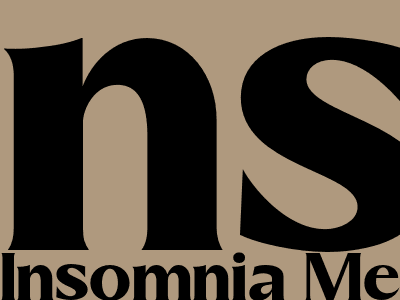Insomnia: A Common Sleep Disorder That Can Affect Your Health
What is Insomnia?
Insomnia is a common sleep disorder that makes it difficult to fall asleep, stay asleep or both. It can be a short-term (acute) problem or a long-term (chronic) problem.
What are the Symptoms of Insomnia?
The symptoms of insomnia can include:
- Difficulty falling asleep
- Waking up frequently during the night
- Not being able to fall back asleep after waking up
- Feeling tired or unrested during the day
- Having difficulty concentrating or paying attention
- Feeling irritable or moody
- Having tension headaches or muscle aches
- Having difficulty making decisions
- Losing interest in activities you once enjoyed
- Gaining or losing weight
- Having digestive problems
What are the Causes of Insomnia?
The causes of insomnia can be divided into two categories: primary insomnia and secondary insomnia.
- Primary insomnia is a type of insomnia that is not caused by an underlying medical condition.
- Secondary insomnia is a type of insomnia that is caused by an underlying medical condition, such as:
- Medical conditions, such as chronic pain, thyroid problems, or diabetes
- Mental health conditions, such as anxiety or depression
- Medications, such as antidepressants or decongestants
- Substance abuse
In some cases, insomnia can be caused by a combination of factors.
How is Insomnia Diagnosed?
Your doctor will diagnose insomnia based on your symptoms and a physical examination. He or she may also order some tests, such as a sleep study, to rule out other medical conditions that may be causing your insomnia.
How is Insomnia Treated?
The treatment for insomnia will depend on the underlying cause. If your insomnia is caused by an underlying medical condition, your doctor will treat that condition first. If your insomnia is not caused by an underlying medical condition, your doctor may recommend:
- Cognitive behavioral therapy (CBT) is a type of therapy that can help you learn how to change your thoughts and behaviors that are contributing to your insomnia.
- Medication may be helpful for short-term treatment of insomnia. However, it is important to note that medication is not a cure for insomnia and it can have side effects.
- Lifestyle changes, such as establishing a regular sleep schedule, avoiding caffeine and alcohol before bed, and creating a relaxing bedtime routine, can also help to improve insomnia.
How Can I Prevent Insomnia?
There is no sure way to prevent insomnia, but there are some things you can do to reduce your risk of developing this condition, such as:
- Establish a regular sleep schedule and go to bed and wake up at the same time each day, even on weekends.
- Avoid caffeine and alcohol before bed.
- Create a relaxing bedtime routine, such as taking a warm bath, reading a book, or listening to calming music.
- Make sure your bedroom is dark, quiet, and cool.
- Avoid using electronic devices in bed.
- Get regular exercise, but avoid working out too close to bedtime.
When Should I See a Doctor About Insomnia?
You should see a doctor about insomnia if:
- Your insomnia is causing you significant distress or problems in your daily life
- Your insomnia has lasted for more than 2 weeks
- You have other symptoms, such as chest pain, shortness of breath, or excessive sweating
- You are taking medication for insomnia and it is not working

Komentar